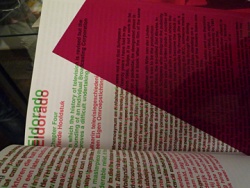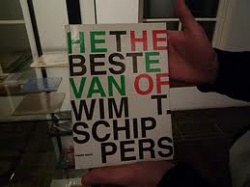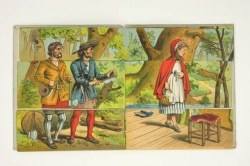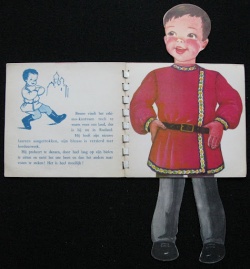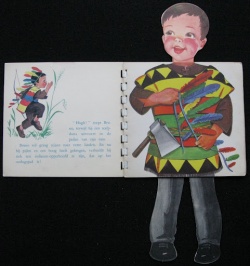User:Loes van Dorp/Thesis brainstorm: Difference between revisions
| (13 intermediate revisions by the same user not shown) | |||
| Line 1: | Line 1: | ||
==Thesis brainstrom== | ==Thesis brainstrom== | ||
== 4 april== | |||
'''Topics:''' | |||
* Introduction project (what how why and relation previous practice) (900 words) | |||
* Theory about perception of memories.(800 words) | |||
* History of animation techniques related to my 'multi screen table'(1000 words) | |||
* Short explanation of the working of the brain how it creates live out of still images. The illusion of live.(800 words) | |||
* Try to answer the question why I prefer the physicality above only digital in my animations? What does it add?(Maybe also through other animations.)(500 words) | |||
* About the content:Show the process of sound edit to animation through sketches and log (1000 words) | |||
* Analyzing my project (sound and image)through describing films and animations which are related to my project and previous practise (by subject or technique)(3000 words) | |||
== 14 march== | == 14 march== | ||
With the help of Steve I decided to write about my own work as an project report. | |||
This will result in a research of the magic of stop motion animation, the magic of make believe, the magic of creating live. | |||
List tot do: | List tot do: | ||
*Rethink narrative of the work | *Rethink narrative of the work (what why how project as it is now) | ||
* | *Extend the proposal ( work into it) | ||
*annotations of | *annotations of works of Svankaijer, Kentridge, [http://en.wikipedia.org/wiki/Brothers_Quay Quay brothers] | ||
===just some words=== | ===just some words=== | ||
* playing with time | * playing with time | ||
* creating illusions ( things that are not there) | * creating illusions ( things that are not there) | ||
* Illusion and live | * Illusion and live | ||
| Line 23: | Line 35: | ||
===thesis outline=== | ===thesis outline=== | ||
Project report on my work: | What : Project report on my work | ||
Content: | |||
* The | * The function of the brain; how it creates live out of still images, how people get fooled by there brain. | ||
* | * Diving into history of animation by describing early animations ( techniques, development) | ||
* Describing animations I really like and why and how they are connected with my project and previous | * Describing animations I really like and why and how they are connected with my project and previous practice. | ||
* Why do I prefer the physicality above digital in my animations, what does it add? | * Why do I prefer the physicality above digital in my animations, what does it add? | ||
* Project report, what how and why. | |||
== 7 march == | |||
===* Jonathan Safran Foer: === | ===* Jonathan Safran Foer: === | ||
Latest revision as of 16:06, 4 April 2012
Thesis brainstrom
4 april
Topics:
- Introduction project (what how why and relation previous practice) (900 words)
- Theory about perception of memories.(800 words)
- History of animation techniques related to my 'multi screen table'(1000 words)
- Short explanation of the working of the brain how it creates live out of still images. The illusion of live.(800 words)
- Try to answer the question why I prefer the physicality above only digital in my animations? What does it add?(Maybe also through other animations.)(500 words)
- About the content:Show the process of sound edit to animation through sketches and log (1000 words)
- Analyzing my project (sound and image)through describing films and animations which are related to my project and previous practise (by subject or technique)(3000 words)
14 march
With the help of Steve I decided to write about my own work as an project report.
This will result in a research of the magic of stop motion animation, the magic of make believe, the magic of creating live.
List tot do:
- Rethink narrative of the work (what why how project as it is now)
- Extend the proposal ( work into it)
- annotations of works of Svankaijer, Kentridge, Quay brothers
just some words
- playing with time
- creating illusions ( things that are not there)
- Illusion and live
thesis outline
What : Project report on my work
Content:
- The function of the brain; how it creates live out of still images, how people get fooled by there brain.
- Diving into history of animation by describing early animations ( techniques, development)
- Describing animations I really like and why and how they are connected with my project and previous practice.
- Why do I prefer the physicality above digital in my animations, what does it add?
- Project report, what how and why.
7 march
* Jonathan Safran Foer:
Tree of Codes by Jonathan Safran Foer
He made a new book out of an old one by cutting away words. The Design is really cool and interesting, something I would like to play with as well.
The book is as much a sculptural object as it is a work of masterful storytelling: here is an “enormous last day of life” that looks like it feels.
* Wim T schippers:
He used the different colours of text for the english version and the dutch version. So he was able to print two stories on the same page. By using the coloured filters, you could read it in the language of choice.
This would be very interesting to use the thesis I want to make. The book I want to write with the same concept as my work. Telling one event through different point of views. On story readable in two different ways.
This idea comes from my diary, where I use to write in a lot. But I never wrote the things that were important or really were bothering me. I would like to make a book where you can read both stories.
A book which you can go through in different ways, and that way read different stories.
Moveable book, cut in three
Synopses
In order to judge a story You need to know the different point of views. A story has always more than one side.
By going through the book in different ways , you will find the different stories. This is possible by printing the two stories in there own color. Each color will give you a different stories.
Another possibility is cutting the pages in three, so that the reader can make their own combinations of beginning. middle and end.

